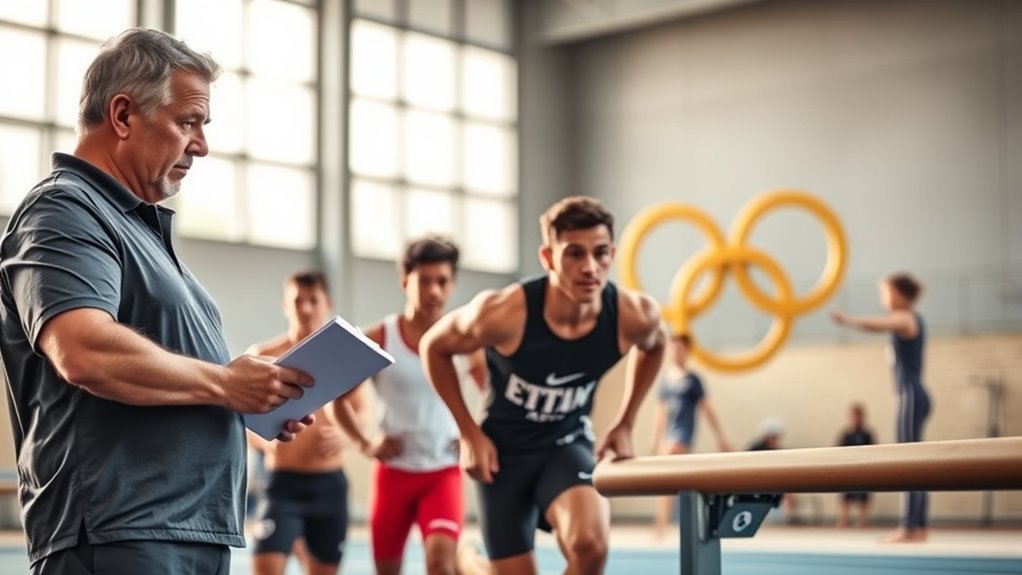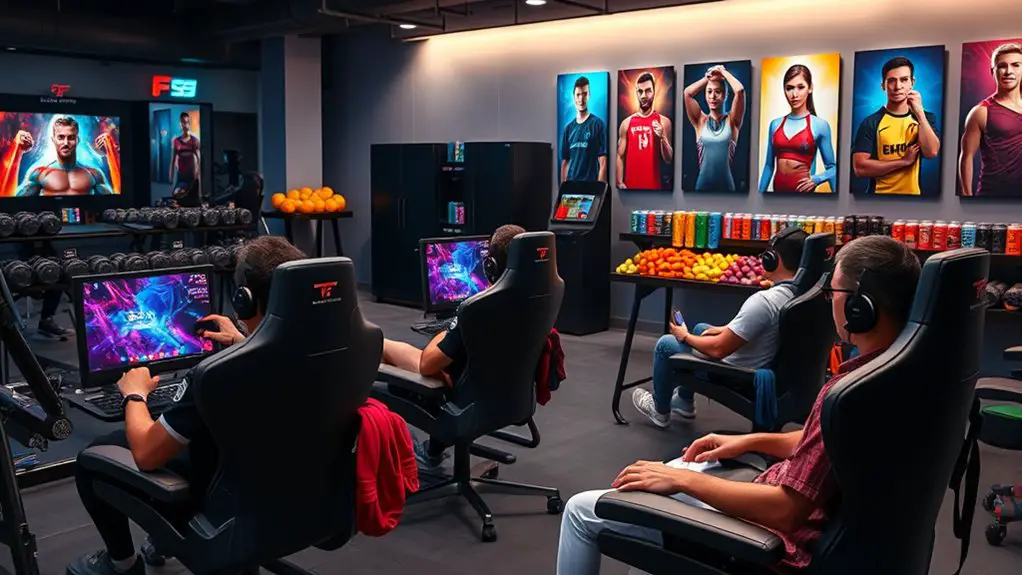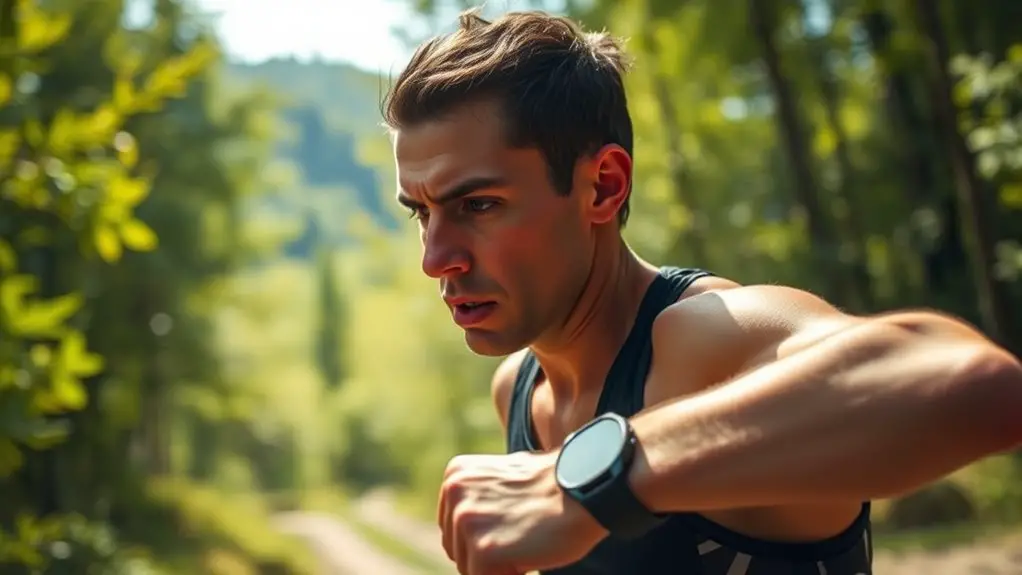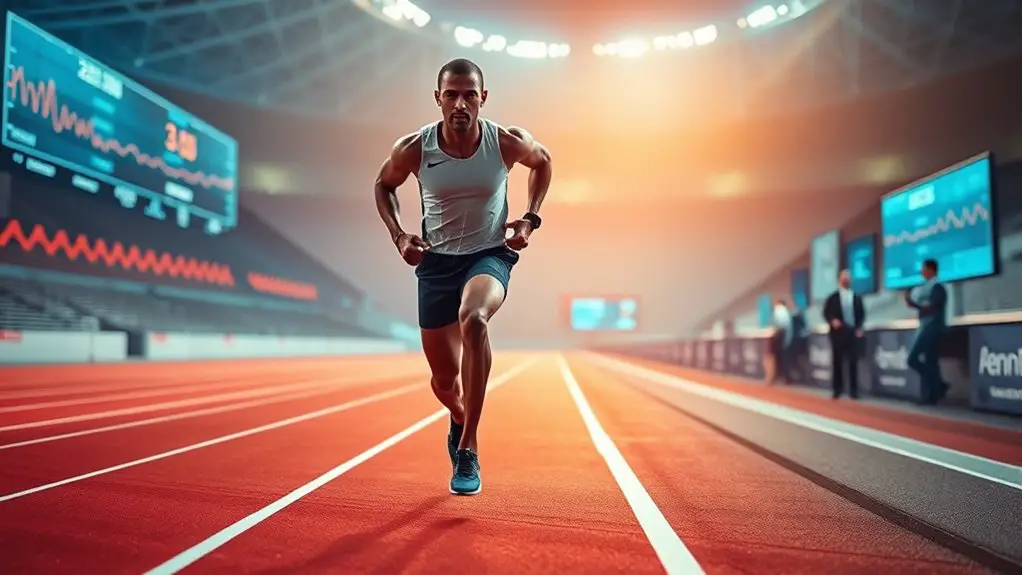Athletes are chosen for the Olympics through a structured qualification process. You’ll need to meet specific performance metrics set by each sport’s governing body. Trials and competitions assess your skills, ranking, and ability to perform under pressure. Sponsorship and funding can also play a significant role in your journey. Luck can occasionally shift opportunities in your favor. There’s much more involved in this complex selection process, and you’ll discover additional insights about it ahead.
The Olympic Qualification Process
When it comes to the Olympic qualification process, understanding the various pathways athletes must navigate can be overwhelming. It’s not just about raw talent; you’ve got to meet specific qualification standards set by international regulations. Each sport has its own criteria, and sometimes these standards can feel like hurdles rather than stepping stones. Athletes need to be strategic, participating in qualifying events and often facing fierce competition. You might feel the pressure, but remember, it’s also about the journey and the freedom to compete at the highest levels. Embrace the challenge, as it’s all part of what makes the Olympics so special. Stay informed and focused, and you’ll find your way through the intricate maze of qualification.
Sport-Specific Selection Criteria
While each sport has its unique selection criteria for the Olympics, understanding them can be essential for aspiring athletes. These criteria often reflect sport nuances and emphasize athlete diversity. Here’s what you should keep in mind:
- Performance metrics: Different sports prioritize various statistics and results.
- Skill assessments: Coaches often evaluate your technical abilities in specific drills.
- Competition experience: Your participation in qualifying events can make a big difference.
- Physical fitness: Many sports require athletes to meet specific fitness benchmarks.
Grasping these elements not only prepares you for the challenges ahead but also empowers you to showcase your strengths. Remember, the journey to the Olympics is as unique as the athletes themselves, so embrace your individuality and endeavor for excellence.
National Governing Bodies’ Role
How do national governing bodies influence the selection of athletes for the Olympics? These organizations play an essential role in shaping national policies that dictate how athletes are chosen. They establish the criteria, ensuring that athlete representation aligns with the country’s values and goals. By setting specific benchmarks and guidelines, national governing bodies empower athletes to showcase their talents while promoting fairness and inclusivity.
Furthermore, they often provide resources and support systems, enabling athletes to excel in their sports. This collaboration between athletes and governing bodies fosters a sense of unity and purpose, allowing aspiring Olympians to pursue their dreams freely. Ultimately, the decisions made by these bodies can markedly impact an athlete’s journey to the Olympic Games.
Performance Metrics and Rankings
When it comes to selecting athletes for the Olympics, performance metrics and rankings play a vital role. You’ll find that each sport has its own selection criteria and ranking systems, which determine who stands out among the competition. Understanding these metrics can give you insight into how athletes earn their spot on the Olympic team.
Selection Criteria Overview
Athletes are selected for the Olympics based on a variety of performance metrics and rankings that assess their skills and achievements. Understanding the selection methods helps clarify how athlete profiles are built and evaluated. Here’s what you need to know:
- Consistent performance in competitions
- Rankings in national and international events
- Historical data showcasing improvements
- Personal bests and records
These criteria form the backbone of the selection process, ensuring that only the most capable athletes compete on the world stage. It’s all about finding those who not only excel in their sport but also embody the spirit of the Olympics. So, when you think of athletes, remember their journey is fueled by rigorous assessments and passionate dedication.
Ranking Systems Explained
Understanding the selection criteria naturally leads to a closer look at the ranking systems that play a pivotal role in this process. These ranking methodologies help determine which athletes rise to the top, reflecting their performance and potential. You’ll find that various athlete assessments are used, including competition results, consistency, and even head-to-head matchups. Each sport has its own unique system tailored to measure the specific skills and achievements that matter most. By analyzing these rankings, you can gain insight into how athletes are evaluated and selected for the Olympics. Ultimately, these systems aim to showcase the most deserving competitors, ensuring that the spirit of competition and excellence thrives in the Olympic arena.
Trials and Competitions
Although the path to the Olympics can be grueling, trials and competitions serve as the essential gateways for athletes seeking a spot on the prestigious stage. To navigate this journey, you’ll encounter various trial formats and competition schedules designed to test your skills and determination.
- Individual events often require you to shine in head-to-head matchups.
- Team sports may involve qualifying rounds where synergy is key.
- Multi-sport events can have rigorous selection processes based on rankings.
- Timing and scores are critical, so every second counts.
These trials not only establish who qualifies but also reveal the grit and passion within you. Incorporating interval training into your routine can enhance your performance and endurance for these competitions. Embrace the challenge, and let your hard work lead you to the Olympic dream!
The Impact of Injury and Recovery
Injuries can come unexpectedly, derailing even the most dedicated athletes’ dreams of Olympic glory. The journey of injury recovery isn’t just physical; it demands immense mental resilience. You might find yourself questioning your path, but remember that overcoming these challenges can lead to greater strength. Understanding your recovery timeline is crucial for a successful comeback.
| Stage of Recovery | Emotional Impact | Key Takeaway |
|---|---|---|
| Initial Injury | Shock & Frustration | Accept the setback |
| Treatment | Hope & Doubt | Believe in healing |
| Rehabilitation | Determination | Stay committed |
| Return to Sport | Joy & Anxiety | Embrace your comeback |
Every setback can be a setup for a phenomenal comeback. Trust in your resilience, and you may find your Olympic dreams still within reach.
The Role of Coaches and Support Staff
Coaches and support staff play a critical role in an athlete’s journey to the Olympics, ensuring they have the guidance and resources needed to excel. The coach-athlete dynamics are essential, fostering trust and communication that propel performance. Support staff roles complement this relationship, creating a well-rounded team focused on success.
Coaches and support staff are vital, cultivating trust and communication that empower athletes on their Olympic journey.
- Coaches develop tailored training programs.
- Nutritionists optimize diet for peak performance.
- Psychologists enhance mental resilience.
- Physiotherapists aid in injury prevention and recovery.
Additionally, ensuring athletes receive quality sleep is crucial, as it facilitates muscle repair and enhances overall performance. Together, they create an environment where athletes can thrive, embracing their freedom to push boundaries. This synergy allows athletes to stay focused on their goals, knowing they have a dedicated team behind them, committed to their journey towards Olympic glory.
The Influence of Sponsorship and Funding
As athletes prepare for the Olympics, the influence of sponsorship and funding becomes increasingly essential to their success. The sponsorship dynamics at play can make or break an athlete’s journey. Those backed by major brands often access better training facilities, coaching, and equipment, while others may struggle with funding disparities that hinder their potential. You might notice that athletes from wealthier nations tend to excel, largely due to the financial support they receive. This unequal footing can lead to frustration for those who have the talent but lack resources. Ultimately, the right sponsorship can empower you to chase your Olympic dreams, ensuring you have what you need to compete at the highest level and embrace your quest for freedom in sport.
The Element of Luck in Selection
While hard work and dedication are essential in an athlete’s journey to the Olympics, luck often plays an unexpected role in the selection process. You might find that chance encounters and serendipitous events can greatly influence your path to the Games.
- A coach noticing your potential during a local competition
- An injury sidelining a top athlete, opening a spot for you
- Unexpected funding from a sponsor after a standout performance
- Meeting an influential figure who believes in your talent
These moments can shift the trajectory of your career. Embracing the unpredictable nature of luck can empower you, reminding you that while you can control your effort, some opportunities may just arise when you least expect them.
Frequently Asked Questions
How Do Athletes Handle the Pressure of Olympic Selection?
Athletes handle the pressure of selection by developing mental resilience and effective coping strategies. You might find that embracing routines, visualization, and mindfulness helps you manage performance anxiety. It’s essential to focus on what you can control and to remember that every competitor feels some level of pressure. By channeling that energy into your training, you can transform anxiety into motivation, allowing you to perform at your best when it truly counts.
What Mental Preparation Do Athletes Undergo Before Trials?
Before trials, you’ll embrace visualization techniques, picturing every detail of your performance, while also building mental resilience to face the inevitable challenges. You’ll shift between confidence and doubt, finding strength in uncertainty. It’s a dance of preparation, where each thought shapes your reality. You’ll learn to breathe through the pressure, letting go of distractions, so you can focus on what truly matters—your passion and the freedom to express your athletic spirit.
How Does Age Affect an Athlete’s Chances of Selection?
Age can greatly impact your chances of selection. Younger athletes often have a youth advantage, showcasing raw talent and energy that can impress selectors. However, don’t underestimate the experience factor; seasoned athletes bring valuable skills and mental resilience that can tip the scales in their favor. Balancing youthful enthusiasm with hard-earned experience can be essential, so embrace both ends of the age spectrum to maximize your Olympic selection potential.
Can Athletes Compete in Multiple Sports at the Olympics?
Yes, athletes can compete in multiple sports at the Olympics, showcasing their dual sport skills. This sports versatility allows you to express your freedom and passion for different athletic disciplines. However, it requires immense dedication and training to excel in more than one sport. If you have the talent and commitment, embracing this opportunity can lead to an incredible Olympic experience, where you can shine in multiple arenas and inspire others.
What Happens if an Athlete Qualifies but Cannot Compete?
If you qualify but can’t compete, it’s a bummer, right? Thankfully, there are qualification alternatives in place. The governing bodies may allow athlete replacements, so your spot won’t go to waste. This guarantees that the competition remains fierce and exciting, keeping the spirit of freedom alive in sports. Just remember, it’s not just about one athlete; it’s about the journey and opportunities for others to shine on that grand stage!



